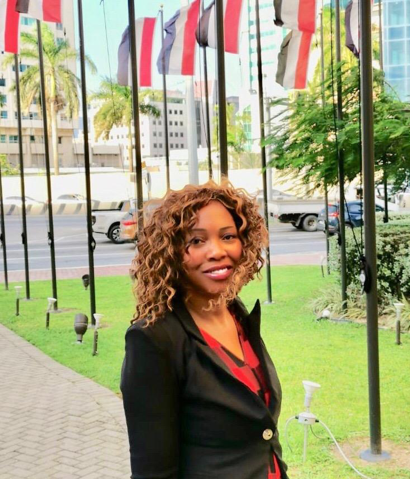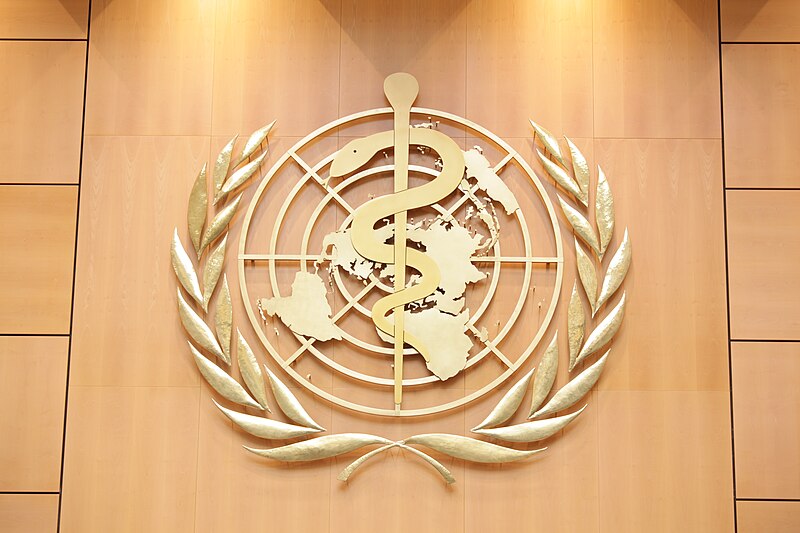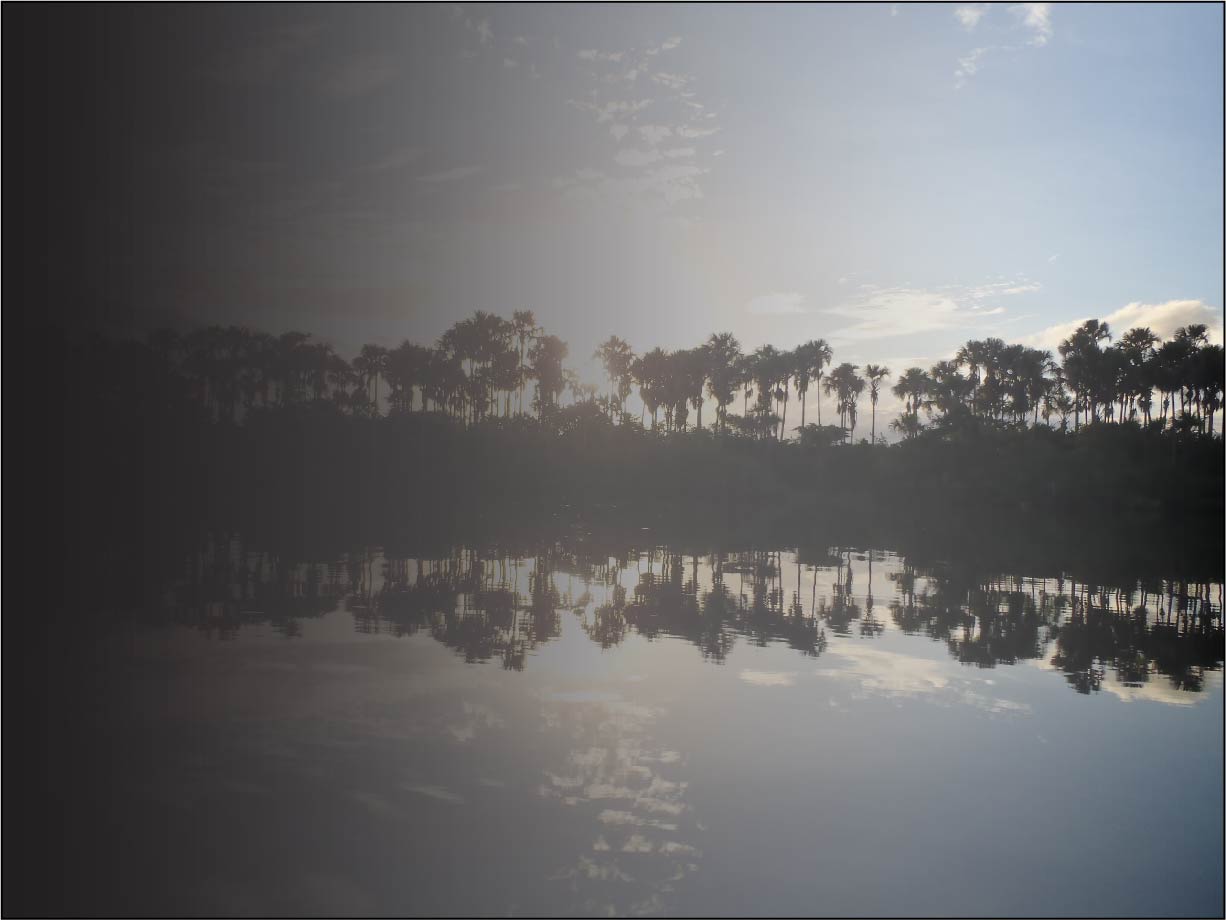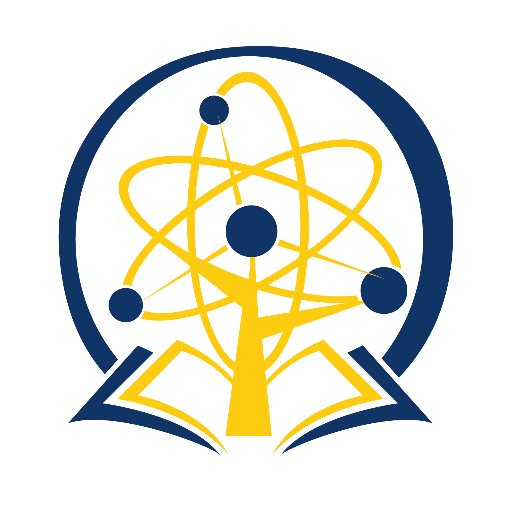
This new installment of “Better Know a Ronin Scholar” continues on the theme of public health. In late October I spoke to UK-based Research Scholar Michelle King-Okoye (pronoun: she/her). Michelle’s research is primarily in the areas of health inequality, and health and illness experience, including prostate cancer research and research surrounding men’s health and minority ethnic population research. She has worked as a Researcher, Lecturer and a Registered Nurse. She also has an affiliation with the Institute for Globally Distributed Open Research and Education (IGDORE) and is the founder and leader of the Ethnicity and COVID-19 Research Consortium. She describes herself as a content wife and mother who prioritizes time spent with family.
Today I’m welcoming Dr. Michelle King-Okoye to Better Know a Ronin Scholar. Hi, Michelle. How has your 2020 been?
Hi, Alex, thank you so much for having me. 2020 has been challenging so far with all the events that COVID-19 has brought especially to individuals and families affected by this dreaded disease. Nevertheless, in the midst of the pandemic I am pleased to contribute to research in this area and policy-making to support families affected by COVID-19 and address existing disparities. I’m really looking forward to this interview to share about this.
It sounds like you’re doing a lot of interesting work at the intersection of public health and now COVID. What has been your journey to your area of scholarship?
Firstly, I’m a nurse. I’ve been in nursing for some time. I am originally from the Caribbean, specifically Trinidad and Tobago. I’ve worked as a nurse in various specialties: ICU, oncology, cancer care, open heart surgery, pediatrics, as well as working in accident and emergency, and the operating theater. I stayed in nursing for about six years or so. And then I worked as a lecturer, after completing studies at the University of the West Indies in collaboration with McMaster University in Canada. I pursued teaching in evidence-based practice, critical appraisal and oncology assessment. After that I migrated to the UK for my post grad training and a PhD in Health Sciences. So it has been quite a journey.
My main focus then, and now, is in health inequality, including ethnicity, culture, and health and illness experiences.
…it goes beyond the physiological elements of the disease and treatment – seeing there is a human being that we are caring for. … I don’t see someone separate from the disease or separate from the person who’s experiencing it. I see them in a holistic way: how the disease affects them, their family, their relationships, culture and their ethnicity.
Traditional academia can be limiting by encouraging people to follow a very narrow path: school, a bachelor’s degree, PhD without any breaks. In contrast, you didn’t take a direct path to research–you worked as a registered nurse for about six years. How do you think that experience of being a nurse influenced or shaped how you approach your scholarship?
That’s a very interesting question. I wanted to be a registered nurse because I enjoy caring for people. I know that being compassionate – especially at a time when someone is unwell—is very important for them to feel as if you’re caring for them as well as having an understanding of the disease and illness experience. So being from that background has allowed me to see health and illness from a personal experience. I’ve cared for people, I’ve experienced death (while working as a nurse) and I’ve experienced firsthand people suffering from different diseases.
So it goes beyond the physiological elements of the disease and treatment – but seeing there is a human being that we are caring for. I have worked and cared for people of all different ethnicities, all different races. And that is also critical, because you might be caring for someone who comes from a different culture, family, traditions, beliefs and practices. For doctors, healthcare practitioners, and all those involved in healthcare, it is so important to see patients in a holistic way. That has shaped my entire view of how I see people. I don’t see someone separate from the disease or separate from the person who’s experiencing it. I see them in a holistic way: how the disease affects them, their family, their relationships, culture and their ethnicity.

If you look at the World Health Organisation definition of health, health is a state of complete physical, mental and social well-being. It takes everything into consideration. Sometimes we forget that. [As a nurse] seeing people being ill, and seeing them recover, and get well that has really shaped how I see people, how I care and how I teach. Now as a researcher – I’ve seen it from all different perspectives. That has truly been a blessing.
Are there times when you’re devising a research study where your experience as a registered nurse helps shape the questions you ask or the kinds of things that you’d look at?
As a researcher, you cannot enter into a research environment with your own preconceived biases. You can’t have your own notions, which could influence the data that you collect. However, it’s really important that you have a compassionate aspect to it. So you try to make [the interview] comfortable for that person. Even though you’re not influencing the data, per se, it will shape the type of questions you’re going to ask. For example, if I am approaching someone who is ill, but from a different background, I would have to study their beliefs and their traditions and their practices. And the questions that I would ask that group of people will differ significantly to another ethnicity. I think my experience [as a researcher] helps guide the questions that I would ask the participant dependent upon the research question and the target population for the study.
How did you first come to join the Ronin Institute and IGDORE?
Before I completed my PhD I was exploring ways in which I could continue to do research without all these restrictions. And one of my colleagues said, “Have you ever heard about Ronin and IGDORE? Maybe you should have a look at the websites to know more about these institutions and potentially join”. Even though I had a traditional path, I felt that I was restricted. I really wanted to pursue other research studies. So, when I came across IGDORE first, and then later, the Ronin Institute, I was really impressed by what they were doing. Especially the open research part–having the articles open-access without any restrictions.
In the traditional setting, you do your PhD, and your supervisors will often tell you which paper to explore, which paper to write, they will sort of dictate everything. There are times that you have something that you would like to pursue, but you feel restricted, based on what they would like you to do. So it’s really nice to be amongst independent researchers like myself, at Ronin and IGDORE, and having that flexibility that I didn’t have prior to this time.
Is there a growing recognition of what Rebecca Willèn of both Ronin and IGDORE calls “new academia” in the UK?
In the UK, they tend to stick more to the traditional route. So there are independent scholars and independent research consultants, but it’s not as recognized as in the US. So if you decide to become an independent scholar or researcher, there is nothing to guide you. I think I discovered that the hard way.
In the UK, to stand on your own as an independent researcher to continue research studies, you need to have an ethics committee, which is attached to university settings. If you don’t have that, it restricts you. The first thing that people ask me when I propose a study – even though I’ve gone through everything – Bachelor’s with Honours, a Masters, a P.hD. – they don’t see those things. All they want to know is – do you have ethics approval for this study?
That would be the equivalent of an Institutional Review Board (IRB) in the US?
Right. IRB, yes. In the Caribbean, it’s also an IRB. But here, in the UK, it’s a Research Ethics Committee.
Yes. It’s been a real learning experience for me to realize just how much research requires an IRB. It’s a gatekeeping function that universities have – making it really tough for people who are not in that system to access, and why we’re working on ways for Ronin Institute Research Scholars to access IRBs.
I really appreciate what Ronin is trying to do [to provide access to IRBs]. It’s something that I believe that if everybody comes together to support it, it will work, eventually. It’s a learning process.
I know that you are involved in a large systematic review of how COVID-19 is affecting the Black Asian Minority Ethnic (BAME) community. How did that study come about?
When the pandemic started, I was doing prostate cancer research, because that is my main field. But when I observed on BBC News, and other news reports, that COVID-19 was affecting BAME people more significantly than other races and ethnicities and the increasing mortality rates, I felt I needed to do something – being of BAME background myself. I felt I should really try and understand the underlying reasons as to why they were more severely affected by COVID-19 than other races/ethnicities.
Because it’s not necessarily BAME people everywhere – BAME people in developed countries are affected more than [BAME people] in developing countries. So it’s not just about race or ethnicity. It goes beyond that. Early in the pandemic, Africans and Asians in their native land weren’t as affected as those that live in developed countries. I was intrinsically motivated to explore that area. But at the same time, I had just finished my PhD and was planning to do prostate cancer research – but everything was on hold, because we had no idea how this pandemic would affect things.
I then saw Crowdfight COVID-19 – an organization that started in response to the pandemic – and I registered myself as a volunteer. The people at Crowdfight COVID-19 were interested [in my project], and said nobody was looking at my particular focus – looking at when people have symptoms, what sort of symptoms, and whether they self-managed their symptoms. Did they seek help? Did they dial 111? I was looking at barriers along the entire journey.
The model that I was using was Scott’s pathways to care, which looks at the process from the appraisal of symptoms until the treatment stage. [Through Crowdfight COVID-19] researchers contacted me from all different parts of the world: from Europe, UK, USA, Canada, and a few from Australia. That’s how the project came together.
What are you hoping to achieve with the project?
My study focuses on a systematic review and mixed methods. The systematic review is almost finished – we’re focusing on help-seeking experiences and diagnosis and treatment. At that time, there was not even one study with that focus. I was only finding grey literature. More recently we are getting empirical data to include. Then there is a qualitative study and a survey. The survey has a dual focus: health and a social focus.
The qualitative study looks at the experiences of being diagnosed with COVID-19. The participants have either been clinically diagnosed or tested positive with COVID-19, or may be having symptoms, or have a family member that has died from COVID-19. Recently, we decided to do something even more substantial: we are now the Ethnicity and COVID-19 Research Consortium, with our own website, which is soon to be launched [Ed – now launched!]. We accomplished all of this without funding, because it was never really about the money. For me the focus was always towards helping people.

It’s exciting. It sounds like you pulled together something great.
Yeah. We’re about 40-something people now and more researchers/academics are coming on stream. And we did get IRB approval via New Mexico State University, USA. But it was really a long journey – I started from nothing. But getting funding in and of itself has never been my focus. I just want to get the data about BAME populations and experiences of COVID-19 to represent these communities via research outputs, which has been severely deficient. Additionally, I would like to focus on communicating my research findings with government officials, policymakers, and leaders of healthcare to affect policy. I’m very passionate about what I’m doing.
You know, we live in a world where people feel as though money drives the passion, which I totally disagree with. I would say that the inner drive comes from being who you are. I’m really privileged to have a team of researchers who are as equally motivated as myself.
You hit on a theme that comes up a lot – the goal of funding is to do research. But the dirty little secret of academia is that the goal of researchers is actually to get funding. The way that the public thinks it works is that you have an idea, you apply for funding, you get the money, you do the research, and then you publish. But what actually happens is that you have to have already done some of the research before you start. It’s the chicken-or-the-egg problem. If you’re starting something from scratch – by definition – you need funding for the initial research. Those in the university system have already got access to seed funding to get started, not the case if you’re outside the system.
Yes, that’s the thing. So that’s why it’s quite challenging to be an independent researcher, because you need funding to do certain things. I remember, somebody asked me a question, what exactly do you need funding for? And I couldn’t understand the question, because this was another researcher asking this question. The answer should be obvious: it’s your time, and – especially the bigger the study is. You have to conduct interviews, transcribe and analyse large data sets, manage various research tasks across different time zones, get access to research studies from electronic databases, IRB approval–you still need money for all of that. Funders often only acknowledge or fund those that work at a university (unlike Independent researchers).
I, for one, believe that once you have a vision – the outcome is what we should be interested in. As researchers, the outcome should be to promote positive change in the health system. We want government officials and policymakers to make changes, so that people who have COVID-19 are supported. We want to identify whatever barriers that exist, if any, and implement changes to help support those people. Once you have a vision, once you are there for the right reasons – to help people – I believe that even without funding you do as much as you can.
You know, we live in a world where people feel as though money drives the passion, which I totally disagree with. I would say that the inner drive comes from being who you are. I’m really privileged to have a team of researchers who are as equally motivated as myself. If I had the ability to perform magic, I would say: “let me provide all the funding that is needed for us to continue this much needed research to support BAME communities globally”. These researchers/academics have their own jobs. But they’re so intrinsically motivated and are really passionate about what they’re doing. They really care about BAME communities that have been affected by the pandemic.
I only publicized this project for one reason: so that other people will not replicate what we’re doing–that they will be aware that this study is ongoing. But when I interview those affected by COVID-19 – individuals and families, I feel accomplished. I know that I’m actually doing something to help them by highlighting their experiences of illness and health systems via research and policy-making. COVID-19 will not stop. It will not disappear overnight. It’s here to stay for some time.
The cultural perspective is important and having an insider approach and shared identity is significant to understanding experiences of similar groups of people. UKRI – one of the largest funding bodies in the UK – sadly, did not support any researcher from the BAME community with funding to examine how COVID-19 has severely affected them.
Are there things in your area and public health in general that are generally missed, because of the lack of diversity in the researchers themselves? Are there specific diseases or areas of research we’re missing, or particular tools or methods that we’re not using?
In public health most [people] come from a health background either as a nurse, doctor, a psychologist, an epidemiologist–those sort of backgrounds. I would say where BAME people are concerned and other people of color, if you look at the research literature, you will see that there is a dearth of studies done in all disease areas – not necessarily just a specific disease, but across all diseases.
I think it is important for Black, Asian and Minority Ethnic researchers to lead research into investigating why these communities are affected by COVID-19. The cultural perspective is important and having an insider approach and shared identity is significant to understanding experiences of similar groups of people. UKRI (UK Research & Innovation) – one of the largest funding bodies in the UK – sadly, did not support any researcher from the BAME community with funding to examine how COVID-19 has severely affected them. There are no words to describe that.
When I went to collect data in the Carribean, they felt comfortable with me, because I understand who they are, the language, and the terms that they use. That’s why it’s important for people like myself – BAME people – to be the principal investigator in research studies, because we will get better and deeper representation of those people.
What are some of the barriers you’ve experienced and new challenges you’re looking forward to?
I have been faced with discrimination of all forms when I decided to pursue this research, which I would not get into. However, I am determined to continue amidst these challenges. I am very pleased to hear that our research has been supportive for those affected by COVID-19. We are first to provide mental health workshops to support those that find it challenging to cope during the pandemic. There are other innovative and novel projects that are soon to be launched, and my team and I look forward to 2021! We will continue to embrace our motto, which is, “Touching a COVID-19 world remotely to transform lives through research and policy-making”
Is there anything else you would like to say?
I would like to acknowledge God for giving me this vision and strength to conduct research of this nature. I would like to express my deep appreciation to my husband and best friend, Dr. Steve C. Okoye for his unwavering support. And to all the researchers/academics who are equally passionate as I am, a special thank you to each of them. I wish to also thank Gavin Taylor and Rebecca Willèn from IGDORE and Dr. Mary Alice Scott from New Mexico State University for their support.
Thank you Michelle!
Thank you.
This post is a perspective of the author, and does not necessarily reflect the views of the Ronin Institute.



